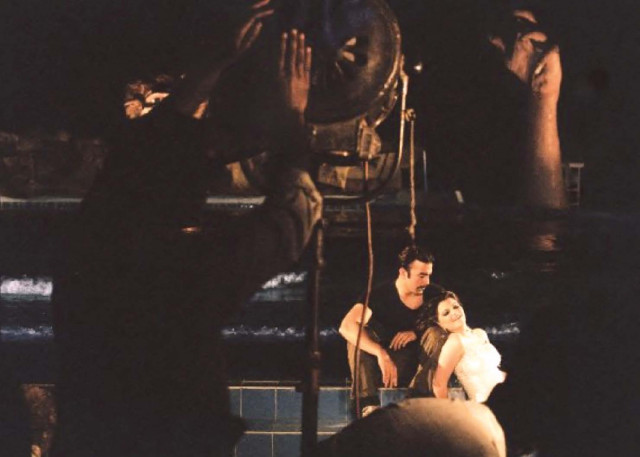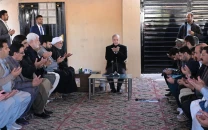Demise indeed
Documentary on Lollywood screened at Trust for Voluntary Organisations.

But let us, as they say be fair, lest one is accused of the same sin. It is without a doubt that one must lament the passing of our film industry; a crying shame that we and the industry itself have allowed to happen and yes this documentary is clearly concerned about it, yet for some inexplicable reasons decides to readily take sides. Names are named and in one example, industry maven Shahzad Gul takes it upon himself to rest the entire blame upon the shoulders of Shan, calling the actor in terms thereabout, the worst thing to happen to the industry. Such partial mudslinging is unbecoming of a film that at least attempts to be balanced and holistic. A dated, out of context interview with the actor is shown where he talks about his films and his acting. Could they not have gotten a recent interview?
Of course one must always do things in threes and fours and every interviewee has his/her own score to settle, levelling the blame on whoever they have a beef with. Samina Peerzada (mohabat kya hai?) takes particular exception to the encroachment by the Gujjars for becoming financiers/producers, imploring them in very classicist terms to leave film to the ‘educated’. Then of course ‘senior actor’ Nadeem starts laying it on ‘unprofessional’ young actors and through inference using stock footage, all these young actors are shown; the actresses in particular coming off the worst with some calling them ‘prostitutes’ as in ‘ it has become an industry of pimps and prostitutes’ (Ms Peerzada’s words who has for the longest time flitted away to TV) , while others invoke the ‘casting couch’ and Mr Papoo Samrat talking about dancing girls while clips of Meera are shown. One is not denying that there aren’t problems with our films but to almost libel isn’t very introspective at all.
Transitions between scenes are in homage, used from old films but the quality is very poor and their duration barely noticeable. The soundtrack is cheesy in its coincidence, trying to match what is going on in the scene and here too taking pot shots at people. The subtitles in English are subpar, neither matching the original Urdu, at times saying something else nor using language that is appropriate.
Overall, the documentary is a possibly well intentioned effort that gets bogged down in petty squabbling, sheer puzzle and ulterior motives. A film that is in serious need of a clear head.
Published in The Express Tribune, December 2nd, 2010.



















COMMENTS
Comments are moderated and generally will be posted if they are on-topic and not abusive.
For more information, please see our Comments FAQ